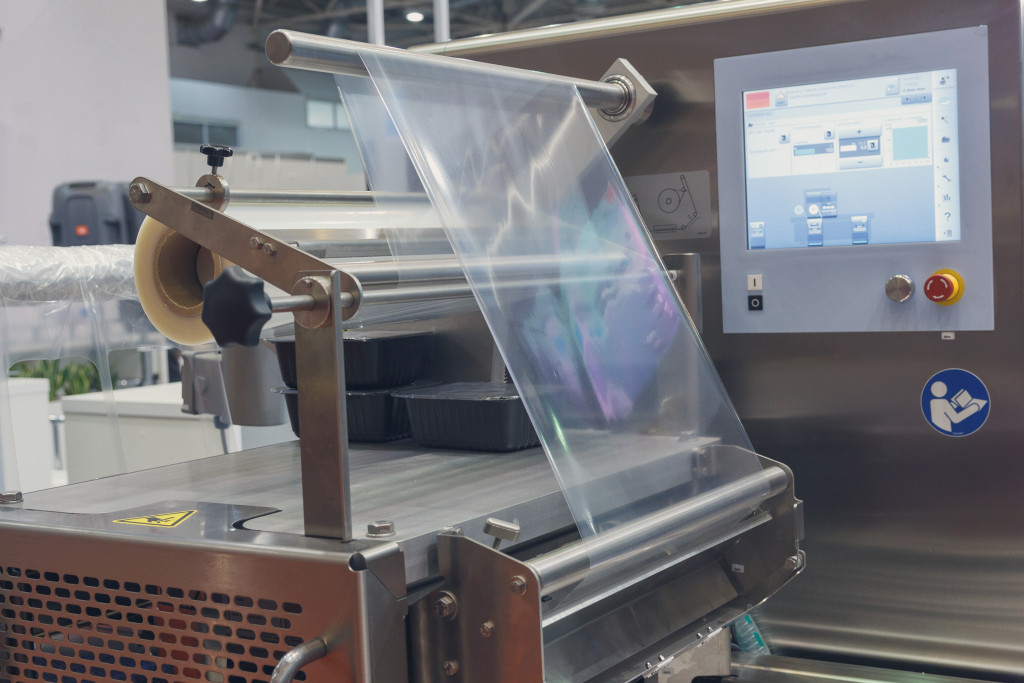Every business has to find ways to streamline its operations and increase efficiency. This is especially important for food manufacturing companies since they deal with perishable items. They also need to be able to meet the demands of a constantly changing market. Here are some ways that food manufacturing companies can streamline their operations.
1. Find ways to automate processes.
Mass production requires many machines and a lot of people to operate them. This can lead to inefficiencies and errors that cost a lot for the company. Automating processes can help reduce these errors and make the production process more efficient.
Many manufacturers turn to robots to automate their processes. You can program robots to do repetitive tasks quickly and accurately. You can also use them in hazardous environments where it would be too dangerous for humans to work.
Additionally, semi-automatic piston filling machines are commonly used to fill food containers with semi-solid or viscous liquids. This type of machine is faster and more accurate than manual filling methods. They can also be equipped with different nozzles to accommodate different containers.
2. Use lean manufacturing principles.
Food manufacturing companies can streamline their operations by implementing lean principles. The goal of lean is to eliminate waste and improve the flow of materials and information through the production process. You can accomplish this by creating a value stream map, which shows how the various steps in the process interact with one another.
Once the waste has been identified, you can eliminate it through techniques such as 5S, which is a system for organizing the workplace. This system helps ensure that all tools and materials are in their proper place to be easily found when needed.
Another lean principle is kanban, a system of signaling when a task needs to be performed. You can do this with physical kanban cards or electronically. By using this system, manufacturing companies can avoid having too much inventory on hand, leading to waste.
3. Improve communication.
Poor communication can lead to errors and delays in the production process. Food manufacturers need to have a clear and concise way of communicating with all team members. This includes having a system in place for conveying information about changes in the production process.
One way to improve communication is to use visual management tools. You can use these tools to display information clearly and concisely. Manufacturing companies can use boards to track production progress, or they can use software to create digital displays.
Another way to improve communication is to use standard operating procedures. You can use these procedures to document the steps that need to be taken to complete a task. This can help reduce errors and ensure that everyone is on the same page.
Depending on the size and complexity of the operation, food manufacturers may also want to consider using enterprise resource planning (ERP) software. This type of software can help manage the flow of information and materials through the production process.

4. Implement quality control measures.
No food manufacturing business can afford to ship out products of poor quality. This is why it is essential to have quality control measures in place. There are several different ways to test the quality of food products.
One way to test quality is to use sensory testing. This type of testing can evaluate the taste, smell, and appearance of a product. It is important to use trained professionals when conducting this type of testing. They will be able to identify any defects that may be present.
Another way to test quality is to use analytical testing. This type of testing can measure the physical and chemical properties of a product. This type of testing can identify any impurities that may be present. Some standard analytical tests include moisture content testing and pH testing.
Food manufacturers should also consider implementing a HACCP system. This system is designed to identify and prevent food safety hazards. It is essential to have a HACCP plan to ensure that all products are safe for consumption.
5. Invest in new technology.
Food manufacturing is a very competitive industry. It is essential to invest in new technology to stay ahead of the competition. There are several different types of new technology that you can use in the food manufacturing process. Some of them include 3D printing, robotics, and artificial intelligence. These technologies can help to improve the efficiency of the production process.
It is essential to partner with a reputable company when investing in new technology. This will ensure that the technology is of high quality and will meet the specific needs of the manufacturing process.
There are many other ways that food manufacturing companies can streamline their operations. These are just a few of the most important ones. By implementing these tips, food manufacturing companies can increase their efficiency and improve their bottom line.



